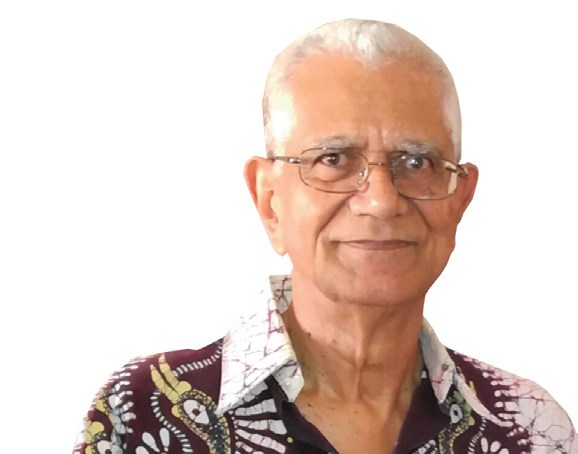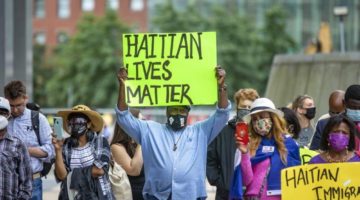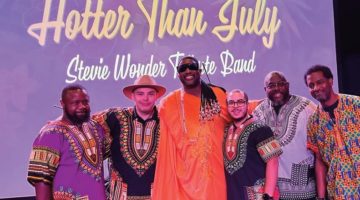When entrepreneur Henry Flagler pushed to make Miami a city, which happened on July 28, 1896, the 368 residents at the time voted for it, among them 162 people of African descent. When he decided to build what eventually became the Florida East Coast Railway in the 1880s, opening up tourism and economic opportunities, he brought in African American workers from Georgia and Bahamians.
Between 1910 and 1929, African Americans also constructed landmark buildings such as Villa Vizcaya, Miami Woman’s Club, Plymouth Congregational Church, Freedom Tower, Booker T. Washington and Miami high schools and the Fisher Island estate. They also built the Lyric Theater for African American businessman Gedar Walker.
Yet, a half-century later, when Dorothy Jenkins Fields, then librarian at Myrtle Grove Elementary School in what is now Miami Gardens, looked for books about African Americans in Miami, she could not find any.
A call to the Miami Public Library got the response that “there was a folder with a few newspaper clippings,” Fields told Miami Herald writer Bea Hines in February 1981. “I was disturbed and asked why there was nothing more on Miami Blacks. The librarian told me, ‘Those people didn’t care about themselves enough to write their history.’”
It was no different at the Historical Museum of South Florida. However, after Fields told the director, Thelma Peters, about how her family from the Bahamas overcame obstacles to become professionals, she was invited for an interview.
That started a journey which has made Fields a pioneer in gathering and preserving the history of African Americans in the Miami area. Now, instead of “a few newspaper clippings,” the Black Archives History and Research Foundation of South Florida, which she founded, is a “manuscript and photographic repository in a community setting,” a non-profit organization with a board of directors and a board of trustees and funded solely by members, donations and grants. Its collection spreads across more than 3,000 feet, executive director Kamila Pritchett told South Florida Times.
An African proverb, “Until the lions tell their story, tales of the hunt will continue to glorify the hunter,” is its motto and its logo is the head of a lion. Creating the archives, which opened in 1977, was a labor of love featuring also a supporting cast of members of Fields’ family and community members. Volunteers who taped oral history sessions with pioneer families included her two daughters. One of them, Edda Fields-Black, then an 8year-old, is now a history professor at Carnegie Mellon University and director of its Dietrich College Humanities Center. One of Fields-Black’s two books, “COMBEE: Harriett Tubman, the Combahee River Raid, and Black Freedom during the Civil War,” has just won a Pulitzer Prize for history.
The collection also includes letters from the early 1900s and copies of obituaries, which, Pritchett noted, “were the only written records available that documented the lives and contributions of African Americans in Miami.” Residents also submitted letters, awards. photo albums, scrapbooks and yearbooks, blueprints, works of art and artifacts. Sororities, fraternities and churches donated records, artifacts and other items. There is also a collection of more than 400 original paintings from Overtown artist Purvis Young.
A cross which the Ku Klux Klan burned at a Miami Shores place of worship is also on display.
So are copies of Ebony and Life magazines from the 1960s and 1970s and newspapers such as The Liberty News, The Tropical Dispatch, The Washingtonian (published by Booker T. Washington High), The Miami Times – which has been publishing continuously for a century – and The South Florida Times.
Researchers, scholars, teachers, students, journalists and community members are among those who visit the Black Archives, as it came to be known.
But, for Fields, there was more to be done. She set her sights on Overtown, the Miami community formerly known as Colored Town, the only neighborhood where African Americans could live because of racial segregation. They made it a thriving business and cultural venue. However, construction of an extension of Interstate 95 through Overtown between the 1960s and the 1970s severely disrupted the community. Fields expanded her historic preservation mission to focus on restoring some of the past glory of the neighborhood where her family had lived.
A Historic Folklife Village was created to showcase Overtown’s former glory as an entertainment district and “the character of black architecture in Miami,” as Fields put it in a December 2023 column in The Herald for which she has been writing since 2008.
The Black Heritage Trail was designated, linking “sites of historical, cultural and architectural significance” throughout Miami-Dade County. A Black Archives Youth Advocacy Program was launched to “encourage children of all ages to develop their full creative potential through the visual and performing arts.”
But it was the Lyric Theater, at 819 NW Second Ave., which became central of Fields’ vision for Overtown’s reawakening, especially after she saw a notice had been posted indicating that the building would be condemned. She argued before the city’s Zoning Department against its demolition, applied to the state and the city for funding to preserve it and conducted research to have it listed on the National Register of Historic Places.
After rehabilitation, the building reopened in 2000 but, Fields told South Florida Times, “It did not meet the needs of a 21st community.” Further construction and an extension providing a new home for the archives, dressing rooms, a lobby and office space, was completed in 2013 and the venue re-opened in 2014 as the Black Archives Historic Lyric Theater. The Black Archives relocated there from the Miami-Dade County-owned Joseph Caleb Center. The venue also hosts cultural events and is available for rent for private gatherings. At one point, when the question of funding arose, Fields explained, she accepted money from the pension of her mother Dorothy J. McKellar to pay staff salaries.
“In the midst of gentrification and redevelopment, the Lyric Theater continues to stand majestically in Miami’s Overtown as a physical reminder of what came before us,” Fields wrote in The Herald. “Located two blocks north of the Brightline train station and Metrorail to the airport, it connects us to the global future providing a sense of identity and continuity for future generations.”
Meanwhile, Fields enhanced her academic qualifications. She earned a certificate in archives administration at Emory University, a master’s degree in curriculum and instruction at the University of North Colorado and a doctorate in 20th century African American history, historic preservation and public history from The Union Institute in Cincinnati, Ohio. She had the benefit also of expert advice, including from University of Miami professor Gregory Bush, who, she said, introduced her to the field of public history. Noted historian and scholar John Hope Franklin was advisor to her doctoral committee.
Recognition has also been forthcoming. Fields became a Charter Member of the Academy of Certified Archivists, a Life Member of the Association of Black Women Historians and a Creative Fellow at the Center for Global Black Studies at the University of Miami.
And, on May 22, the Miami Foundation will honor Fields, along with Valencia Gunder of The Smile Trust and The Black Collective and Cornell Crews Jr. of the Community Reinvestment Alliance of Florida with its Community Champion award and Tracey and Christopher Carter with its Philanthropy Champions award at its 10th annual State of Black Philanthropy celebration. The theme is “Black Liberation by any other name is simply the freedom to live, thrive and write the future with no limitations.” The Foundation has provided $772 million from 50,000 donors to more than 1,000 groups, its website says. (Fields picked this writer to give taped remarks introducing her at the event. More information is available at https://miamifoundation.org/) “You’ve spent a lifetime ensuring that Black Miami’s story is preserved and told,” the Foundation wrote to Fields. “You’ve fought hard to ensure our community knows its history – and that our story isn’t erased. And, in knowing and understanding the past, we are able to look to the future. Your work continues to ensure that Black Miami has the opportunity to not only remember but also write its story well into the future.”
At a time when African American history is under siege by states such as Florida and the Donald Trump administration, the Black Archives which Dorothy Jenkins Fields built will ensure that, at least in this corner of the nation, some of that history will survive and the lions have a story to tell.













No Comment